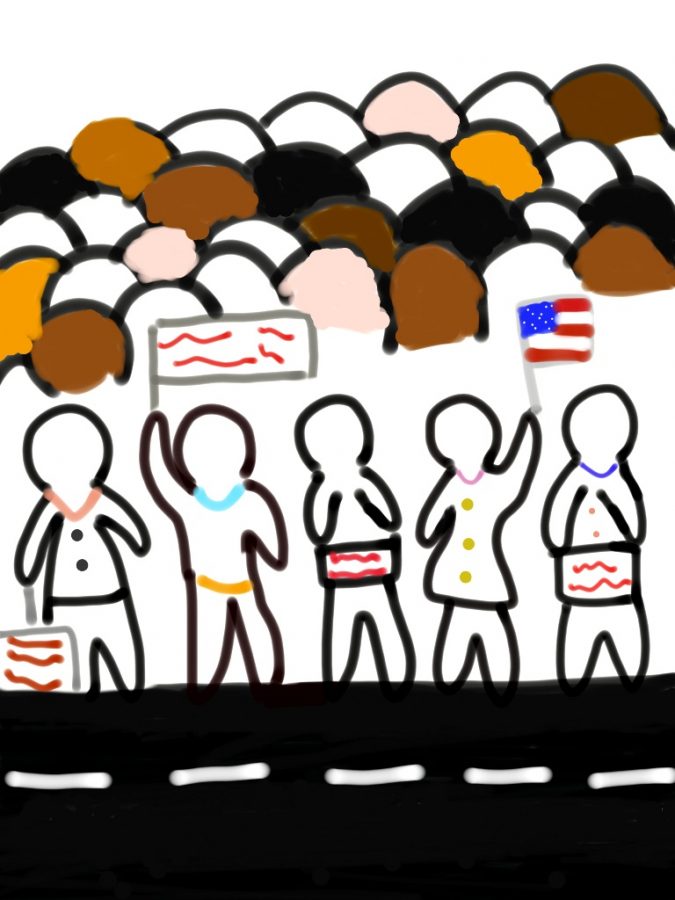Protests should not encroach on daily life
Protesters waving American flags block the streets during their protest.
December 5, 2019
Protesters in Hong Kong have been challenging the totalitarian status quo for weeks now, blocking the streets and challenging the Chinese authority in a game of cat and mouse. Closer to home, DC protesters regularly block main roads, advocating for stricter regulations on various issues. In both of these situations, the protests disrupt the daily lives of citizens who would not be involved otherwise.
Public protests are an outgrowth of the democratic process, and they give citizens a magnified voice in the social and political structures in which they live. However, encroaching on the business of others is unacceptable. While these protests may be well-intentioned, they should involve only the protesters and the group whom they are protesting.
Banning protests that block public activity acts as a deterrent and a punishment. Blocking busy roads, especially during rush hour, affects thousands of people. Any given person on the road could be rushing to the emergency room or an urgent appointment. Many people are just driving to their jobs, and to an average citizen, being late to work can make a significant difference.
In emergency situations, a road block could prevent somebody from reaching a hospital or a police officer from arriving promptly at a crime scene. As a result, authorities must step in and protect public order. One man or woman who is just trying to get to work or an urgent appointment should not be the victim of another person’s activism.
Civil disobedience is sometimes an effective tactic. Eleanor Clemans-Cope, sophomore and co-founder of MoCo on Climate explained “A rising tactic right now in the climate movement is Extinction Rebellion, which is doing a shutdown of cities. [Protesters] will gather in the streets… They will stand in solidarity and basically shut down business as usual so that people in DC absolutely cannot ignore them.”
But this does not mean that we should make city shutdowns legal. While civil disobedience demonstrates that people are willing to make sacrifices for a movement and helps boost the movement’s credibility, ordinary residents may grow to resent the movement due to its disturbances.
There are plenty of ways to protest systems and create political and social change without inconveniencing ordinary citizens. Boycotts can at least send a message to corporations, and political concerns are addressed most effectively at the ballot box. Ultimately, you can simply secure a permit beforehand, or protest on the weekend. But even if protesters do choose civil disobedience, the illegality contributes to the efficacy of the protest.
This measure sets a reasonable standard for protesters to follow. Some may still choose disruptive civil disobedience, but they must weigh their options and recognize the damage they may cause. Laws will not only act as a deterrent but also as a gauge for how dedicated the activists are to their cause. In the case of a human rights abuse or immediate problem, activists will have to be willing to break the law to effect change, instead of shutting down a city for a petty reason.
Peaceful protests are a crucial part of any healthy democracy, but so is law and order. Not only do legal measures discourage disruption of daily life, but they solidify the importance of the protest. We may not be able to prevent civil disobedience, but we can mitigate the damage it can cause.


